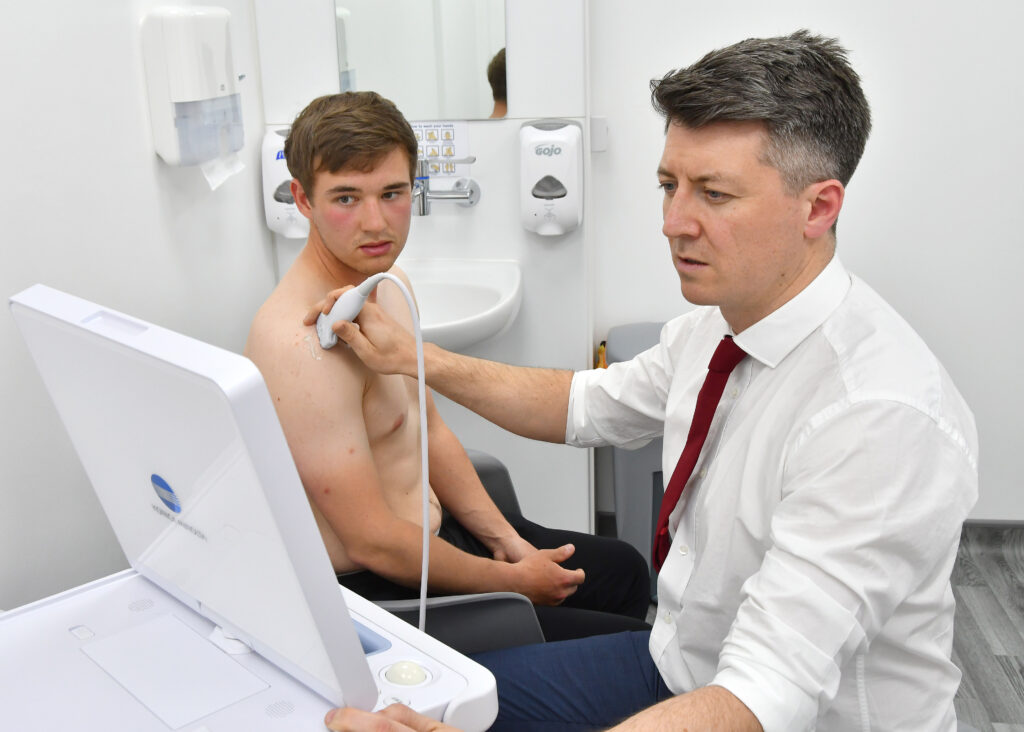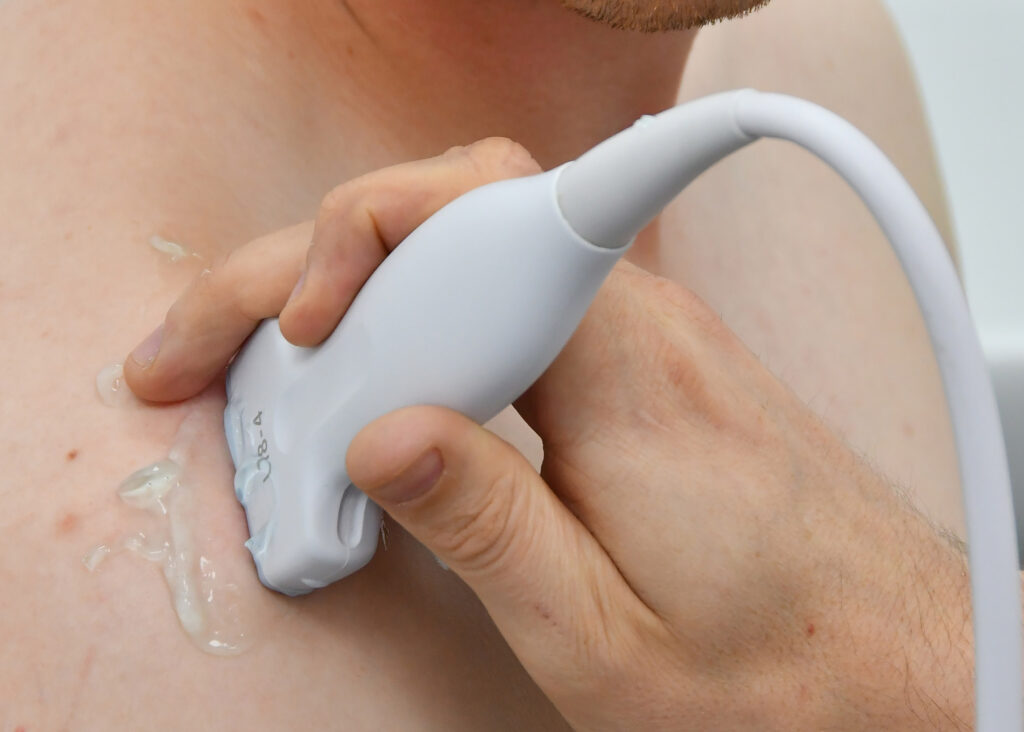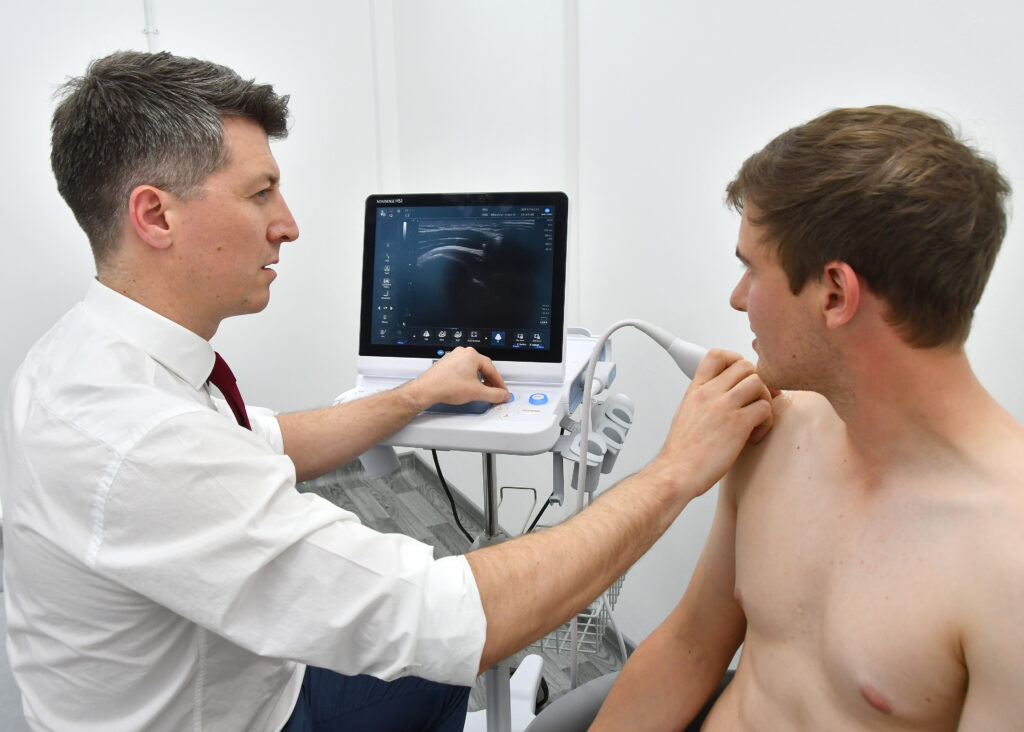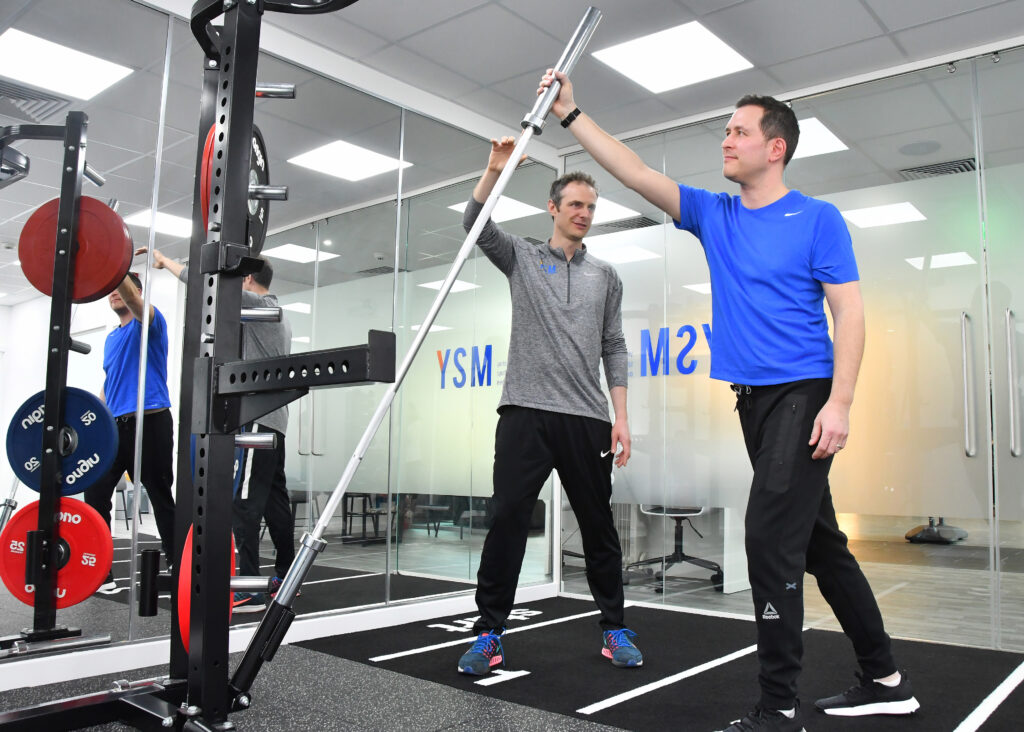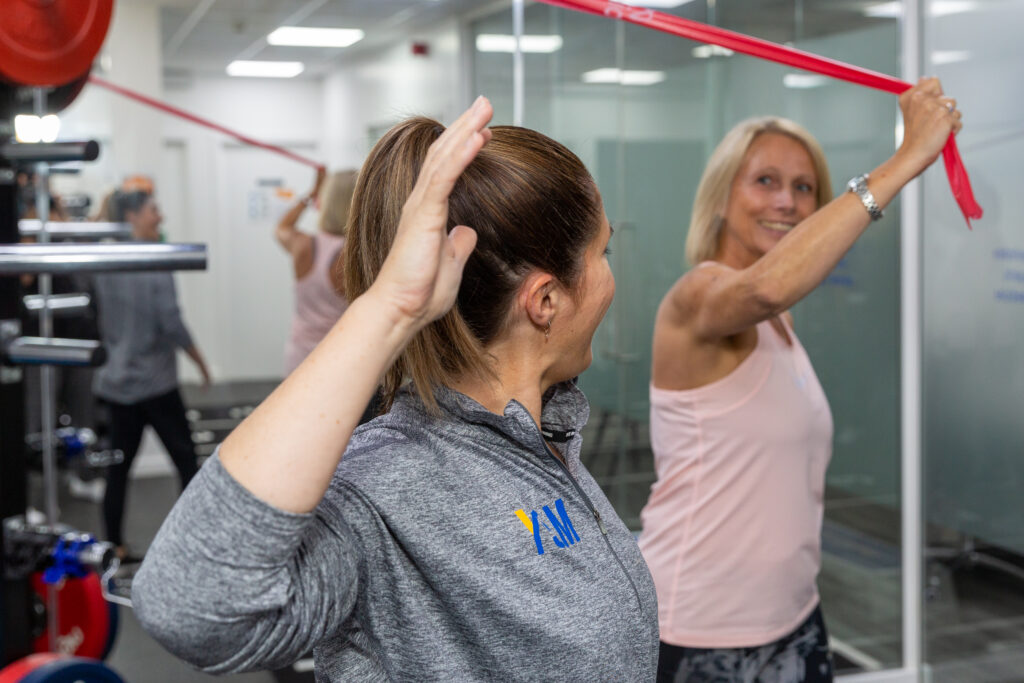Rotator Cuff Tears
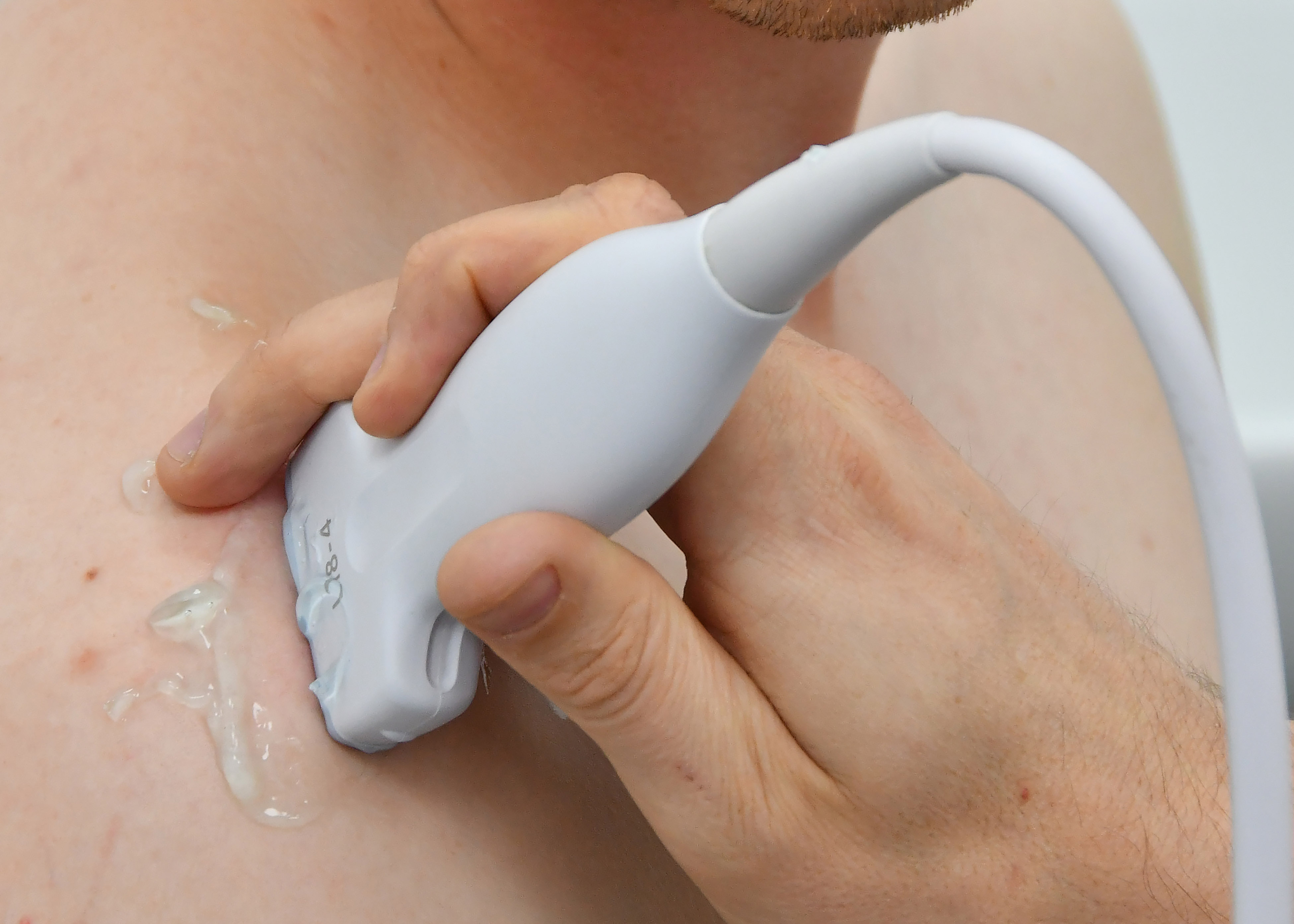
Written by Mr Simon Boyle, Consultant Orthopaedic Shoulder Surgeon

What are the symptoms of a rotator cuff tear?
Rotator cuff tears often cause discomfort in the shoulder that can extend down the outer part of the shoulder and arm. This is usually worse when trying to lift your arm out in front, to the side or reaching around your back. This can affect your sleep at night. There may also be weakness and difficulty in performing activities overhead. Clicking and catching may be experienced when moving the shoulder.
What is the rotator cuff?
The rotator cuff is made up of 4 tendons which surround the inner part of the shoulder. Their function is to allow the shoulder and arm to be moved in all directions. Good rotator cuff function is essential to enable the shoulder to perform overhead tasks and play sports.
What causes rotator cuff tears?
Many rotator cuff tears occur as a result of a fall or an accident or shoulder dislocation. In these instances it is usual to feel sudden pain in the shoulder or even a tearing sensation. Other tears occur more gradually as part of the normal wear and tear that takes place as we get older. In some cases, rotator cuff tears are found incidentally and do not cause any symptoms.
What treatment can be offered?
A thorough assessment is needed by a Clinician experienced in this shoulder disorder. This can be undertaken by one of our expert Physiotherapists or Sports Medicine Doctors. The Clinician at YSM will assess, diagnose and give you a primary course of treatment. The first line treatment involves good structured Physiotherapy under the direction of the assessing Clinician and developing a strategy to manage your pain. Many cases can be managed successfully in this way. When the tear has happened recently as a result of a fall or an accident then we would advise arranging imaging to look at the potential extent of any damage and whether this needs repairing.
Are any special tests needed?
To definitively diagnose a rotator cuff tear requires further imaging investigations. An ultrasound is one of the best ways to determine whether your rotator cuff is torn. An ultrasound scan can be performed for you in our Yorkshire Sports Medicine Clinic and this may be recommended when a tear is suspected. YSM can refer you for other investigations such as an X-Ray or MRI scans if additional information is required.
Post-surgical rehabilitation
If you have needed to have a torn rotator cuff repaired surgically, YSM offers the full expertise to help you through the rehabilitation post surgery.


